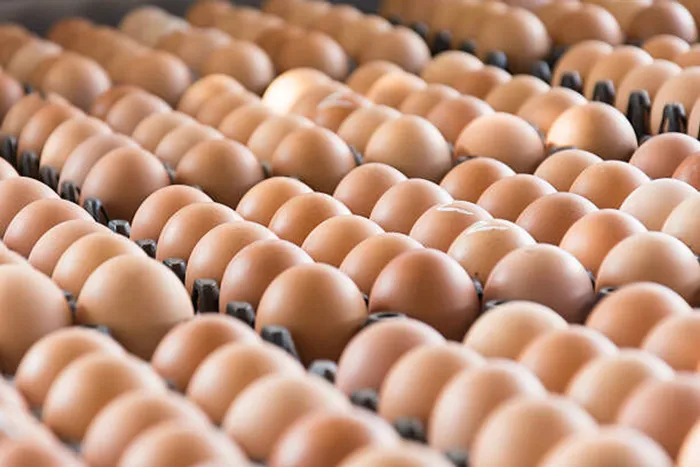
Quantum Food Holdings' egg business, under the Nulaid brand, saw a strong recovery in the 2025 financial year, despite a 17.1% decline in average selling prices. Increased volumes and tight cost management sustained profitability and ensured a positive contribution. Supply was 79.5% higher than the previous year, supporting the rationale for the reopening of the Pinetown packing facility in August 2024.
Image: supplied
Quantum Foods Holdings strengthened its feed, farming and egg businesses in the year to September 30, while advancing growth opportunities in Africa, the CEO, Adel van der Merwe, said on Friday.
"Despite challenging conditions, we improved efficiencies, invested in capacity and delivered against our targets," she said at the release of annual results that showed total volumes 8.7% from the 2024 financial year, while a dividend of 34 cents per share was declared compared with zero dividend in 2024.
She said the solid performance was underpinned by operational efficiencies and volume recovery, leading to improved profitability. Headline earnings came to R272 million versus R161m in the 2024 financial year.
Animal feeds reported a "substantial" recovery in volumes. in farming, layer parent stock was redistributed and a rebalancing of the regional broiler breeder was completed.
"We achieved excellent layer farming efficiencies and further improved broiler performance in the southern region. Some disruptions were experienced during the year, including cancellations and postponements of layer livestock orders," she said.
In Africa, profitability improved, although operations in Zambia and Mozambique remained difficult, with the latter affected by looting during the political unrest. An expansion in feed mill capacity that is underway will position the group well for increased demand, she said.
The broiler business was a key growth area and there were plans to become self-sufficient in terms of breeder eggs.
"We intend to limit layer flock growth to optimise current assets for sustained efficiency. We prepared the business for increased day-old chick and day-old pullet supply," she said in the results commentary.
The commercial layer farming and Nulaid operations would continue to be rightsized with a more focused geographical and market approach. The egg business saw a strong recovery, despite a 17.1% decline in average selling prices. Increased volumes and tight cost management sustained profitability and ensured a positive contribution.
In Zambia, expected increases in demand would drive capacity utilisation for the expanded feed mill. In Uganda, hatchery capacity was increased to drive further breeder growth. In Mozambique, partners were being sought to scale the business.
Animal feeds revenue was up 5.6% to R3.31bn. Adjusted operating profit from feeds increased to R103m from R94m.
In farming, revenue increased 8.4% to R2.03bn. Adjusted operating profit increased to R127m, a turnaround from last year due to biological write-offs from avian influenza outbreaks.Total day-old chick production increased by 6.4%. Live broiler volumes fell 0.3% due to a slight reduction in the number of broilers supplied. Day-old pullet volumes were up 28.1%.
"We improved efficiencies and managed costs diligently while improving control procedures and upgrading equipment. This reinforced product quality. Year-on-year stock losses declined through focused actions and strong operational execution. We grew our customer base by successfully embedding our service model in key customers' operations to increase on-farm performance," she said.
The Malmesbury feed mill was operating at full capacity, underscoring the rationale for the current expansion. The explosion at the intake facility in June 2024 had caused a temporary disruption, but repairs were completed in December 2024.
The bag feed and depot model continued to gain momentum in the North, servicing informal and emerging farmers. These depots also provided new opportunities to sell complementary products such as chicks, medication and other farming inputs.
"Looking ahead, we will focus on completing major capital projects, improving efficiency, expanding broiler operations and expanding African operations. While challenges persist, including ongoing HPAI risks and broader economic volatility, the group enters 2026 with a clear strategy, a strengthened operational base and the capability to deliver sustainable growth," she said.
Future value creation would come from scaling efficient, lower-risk production models, leveraging technology, planning and logistics, and deepening the presence in African growth markets.
Visit:www.businessreport.co.za